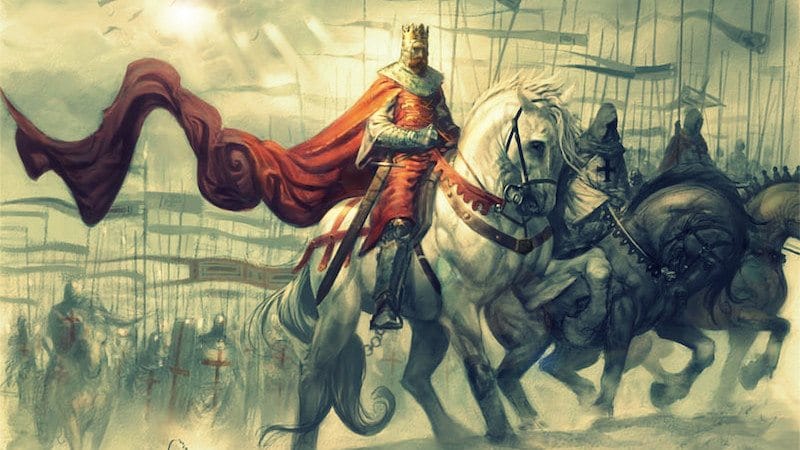Step into the captivating world of the legendary House of Plantagenet! Dive into a world where myths, legends, and history intertwine. From dramatic controversies to glorious triumphs, the Plantagenets have left an undeniable mark on history. Their grand castles and the tales of powerful queens continue to fuel our imaginations. Join us on a journey through the captivating folklore that surrounds this extraordinary family, uncovering the secrets and stories that continue to fascinate us to this day.
House of Plantagenet Folklore
The Plantagenets, rulers of England from 1154 to 1485, left behind more than castles and crowns; they left a legacy of stories whispered by the fire and spun into legends more enduring than any fortress. These tales, passed down through generations, offer a glimpse into how the Plantagenets were perceived – a family drenched in power, shadowed by conflict, and perhaps even touched by magic.
A Dynasty Cursed? Whispers of Darkness
Imagine medieval England, where life was harsh and people sought explanations for the whims of fate, especially from their rulers. The Plantagenets, renowned for their ruthlessness, became almost mythical figures. Whispers of a curse following them, a darkness clinging like a shroud, spread throughout the land.
This curse, they said, originated with Geoffrey of Anjou, husband of Empress Matilda. His influence, they claimed, was the source of the Plantagenets’ ruthlessness, a cruelty flowing through their veins like royal blood. Some rulers even leaned into this spooky reputation, recognizing that fear was a powerful tool to maintain their grip on power.
From Geoffrey and Matilda: The Seeds of a Dynasty
The Plantagenet story begins with Geoffrey of Anjou and Empress Matilda, daughter of King Henry I. Their marriage was a strategic union, merging the powerful families of Anjou and Normandy into a formidable force. This union laid the groundwork for the Plantagenet ascent to the throne.
Matilda, however, wasn’t just any princess; she possessed a claim to the English throne, and fight for it she did. The resulting civil war solidified the Plantagenets’ image as a family unafraid of conflict, a family born from it.
More Than Just a Sprig: The Symbolism of the Broom
The humble broom sprig might seem an unlikely symbol of power, but for the Plantagenets, this simple plant, the planta genista in Latin (from which their name derives), held deep meaning. It represented their connection to the land, to their roots, a reminder that they were not just about opulent palaces and jeweled crowns, but were of the earth, like the people they ruled.
The broom sprig also symbolized adaptability. Its ability to weather any storm, bending with the wind without breaking, conveyed a powerful message, even for a dynasty draped in velvet and ermine.
The Plantagenets Today: A Legacy That Endures
Centuries later, the Plantagenets are no longer confined to dusty history books. They’re everywhere – in novels, television shows, movies. Their story, filled with kings and queens who walked a tightrope between power and ruin, continues to fascinate us. Their lives, full of drama, intrigue, betrayal, and maybe even a curse or two, continue to capture our imaginations, reminding us that sometimes, the line between history and legend is as thin as a whisper in the wind.
What are the origins of the Plantagenet dynasty?
The Plantagenets’ path to becoming kings and queens of England began in France, specifically in the region of Anjou, where they started as Counts of Anjou. The name “Plantagenet” wasn’t some grand title at first; it came from Geoffrey V, the Count of Anjou. He was known as “Geoffrey Plantagenet” because of his habit of wearing a sprig of the broom plant (planta genista) in his hat.
Their rise to royalty truly began when Geoffrey’s son, Henry II, inherited the English throne in 1154, officially establishing the Plantagenets as England’s ruling dynasty, a reign that would span over three centuries.
The Plantagenet dynasty was filled with remarkable figures, such as Richard the Lionheart, the legendary warrior king who dedicated much of his reign to the Crusades, battling across the Holy Land. His bravery and military achievements made him a legend in his own time and beyond. Then there was Henry V, the mastermind behind England’s astonishing victory at the Battle of Agincourt, who significantly expanded England’s territory during the Hundred Years’ War.
Beyond battle and conquest, the Plantagenets played a pivotal role in shaping English history—forging powerful alliances and promoting arts and culture. Their reign saw significant changes in England, including the development of Parliament, the system of government still in place today. And of course, let’s not forget King John and the Magna Carta, a pivotal moment that forced the king to adhere to the law, just like everyone else.
Here’s a concise overview of the Plantagenets:
- Originated from Anjou in France, earning their nickname from a flower.
- Established their reign in England in 1154 with Henry II as their first king.
- Ruled England for over 300 years (from 1154 to 1485).
- Boasted famous kings, including Richard the Lionheart and Henry V.
- Significantly influenced English history through politics, wars, and their support of the arts.
The Demonic Ancestor Myth – Truth or Fiction?
The Plantagenets, known for their intensity, were often associated with a peculiar legend – a demonic ancestry. This belief, first surfacing around the 12th century, wove a captivating narrative of supernatural influence.
Rumor had it that their ancestor, Ingelger, had a dalliance with a demoness, resulting in a child touched by the supernatural. In those times, such stories spread like wildfire, fueled by fear and superstition.
Interestingly, some Plantagenet kings, like the legendary Richard the Lionheart, seemingly embraced this rumor. The idea of possessing demonic powers would have been an intimidating prospect for their enemies, adding an extra layer of fear and bolstering their authority.
In the context of the Middle Ages, a time steeped in superstition, it’s not surprising that the Plantagenets’ ruthlessness was attributed to supernatural forces. Their enemies likely saw their successes as evidence of this demonic influence.
Although there is no concrete evidence to support the Plantagenets’ demonic lineage, the myth persists, woven into the fabric of their history. It’s a testament to the power of storytelling and the enduring allure of the unknown. The Plantagenets, while not actual demon spawn, certainly made their mark on history, leaving behind a legacy that continues to captivate our imaginations.
Iconic Plantagenet Figures and Their Legends
The Plantagenet dynasty wasn’t just about powerful rulers; it was shaped by remarkable individuals who left their mark on history through their actions and personalities.
Larger Than Life: Richard the Lionheart
No discussion about the Plantagenets is complete without mentioning Richard I, better known as Richard the Lionheart. A natural warrior, Richard epitomized the image of a medieval king – fearless, a brilliant military strategist, and a man of action.
Richard dedicated a significant portion of his reign to the Crusades, fighting to conquer the Holy Land. His courage and military achievements transformed him into a legend. Even centuries later, he remains one of the most recognizable figures of the medieval world.
Eleanor of Aquitaine: Queen, Powerhouse, and Legend
Eleanor of Aquitaine was no ordinary queen. She was a force to be reckoned with – immensely wealthy, powerful, and politically astute. She understood the intricate game of thrones, often outmaneuvering her male counterparts.
Although Eleanor ruled alongside her husband, Henry II, she was far from a passive figurehead. She actively participated in governing England, challenging anyone who dared to oppose her. They were a power couple in the truest sense.
The Ups and Downs of a Royal Dynasty
The Plantagenet era was a whirlwind of triumphs and tragedies. They expanded England’s territory, reformed the legal system with groundbreaking acts like the Magna Carta, and were patrons of the arts, setting trends for their time.
However, like any family, they had their share of internal conflicts. Power struggles, family feuds, and ultimately, the devastating War of the Roses, led to their downfall, a tale as dramatic as any Shakespearean tragedy, but with real crowns and castles at stake.
A Dynasty Cursed? The Intrigue Continues…
Adding to the Plantagenet mystique is the enduring legend of the “Curse of the Plantagenets.” This historical whisper claims that a disgruntled archbishop, blaming the dynasty for his demise, cursed the entire lineage.
This wasn’t a curse of everyday misfortune; it was believed to bring about calamities on an epic scale – madness, untimely deaths, and a string of unfortunate events. While the curse’s validity remains a mystery, its presence in the Plantagenet narrative adds another layer of intrigue to their already captivating story.
To further explore the fascinating history of the Plantagenets, you can discover the lineage of King Henry II and his close relatives through a comprehensive king henry ii family tree. Their story offers a glimpse into a world of power, intrigue, and the enduring power of legends.















